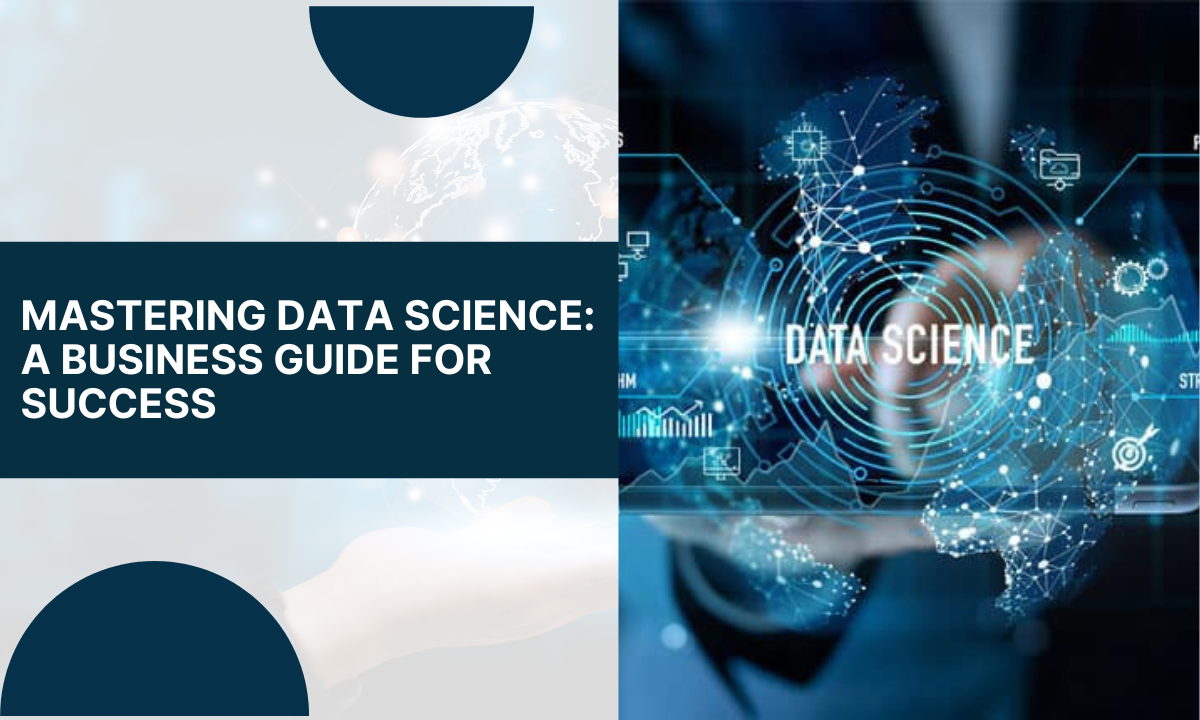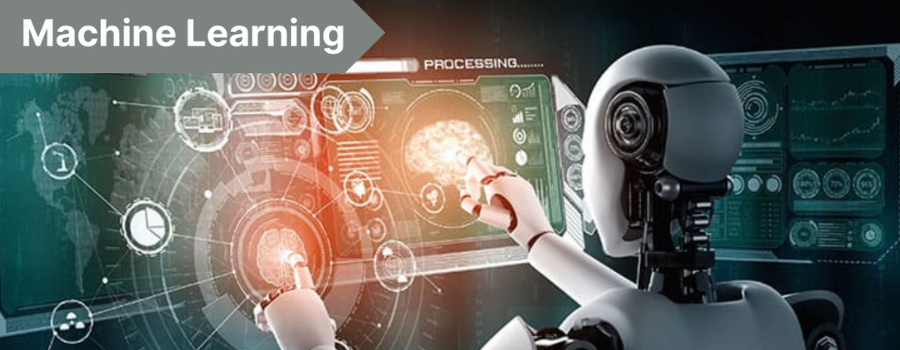- Delhi
- Last Update 03:30: am

Mastering Data Science: A Business Guide for Success
In today's digital age, data has become a cornerstone of decision-making and strategy development for businesses across various industries. Leveraging data effectively can lead to significant competitive advantages and improved performance. This article delves into the world of data science, exploring its benefits, practical applications, key components, challenges, and more.
Introduction
Data science is fundamentally an interdisciplinary field that deals with information and insight extraction from both organized and unstructured data. It includes a range of methods for analyzing large, complicated data sets and producing insights that may be put to use, such as machine learning, data mining, statistics, and predictive analytics.
Benefits of Data Science
A. Improved Decision Making
Businesses can now base their strategies and actions on empirical evidence rather than conjecture or gut feeling thanks to data-driven decision-making. Organizations may make better decisions that are in line with their goals and priorities by examining past data and seeing trends.
B. Enhanced Efficiency and Productivity
Organizations may reduce inefficiencies and streamline workflows by implementing data science techniques like automation and optimization. Businesses may automate tedious jobs, allocate resources more wisely, and optimize processes for optimal efficiency by utilizing algorithms and predictive models.
C. Personalized Customer Experiences
The capacity of data science to tailor consumer experiences based on unique interests and behavior is one of its main advantages. Businesses can provide audience-relevant marketing campaigns, customized product recommendations, and personalized offers by evaluating customer data and segmentation.
D. Fraud Detection and Risk Management
Data science is essential to risk management and fraud detection in several sectors, including e-commerce, healthcare, and banking. Organizations can detect fraudulent activity, reduce risks, and guard against any dangers to their operations by examining patterns and abnormalities within data sets. Data Science Proficiency for Companies
Data Science Skills for Businesses
In the rapidly evolving landscape of modern business, data science skills have become increasingly indispensable for organizations seeking to thrive in a data-driven environment. As businesses grapple with vast amounts of data generated from various sources, the ability to extract actionable insights and make informed decisions has become a critical competitive advantage. Here are some essential data science skills that businesses should prioritize:
Statistical Analysis: Understanding statistical analysis fundamentals is essential for deciphering trends, patterns, and correlations in data. Competent in statistical methods, data scientists are able to validate hypotheses, draw significant conclusions from data sets, and produce trustworthy forecasts that inform strategic decision-making.

Data Visualization: The ability to effectively communicate complex data insights through visualization is essential for driving understanding and engagement across stakeholders. Data visualization skills enable professionals to create compelling charts, graphs, and dashboards that distill complex information into accessible formats for non-technical audiences.
Programming Proficiency: When working with large-scale data processing and analysis, data scientists need to have strong programming skills. Professionals that are proficient in Python, R, and SQL are able to manage data, create analytical models, and implement scalable solutions that generate value for their company.
Data Wrangling and Cleaning: Data wrangling involves the process of transforming raw data into a structured format suitable for analysis. Data scientists proficient in data wrangling techniques can handle missing values, remove duplicates, and preprocess data to ensure accuracy and reliability in subsequent analyses.
Machine Learning: Businesses can use machine learning algorithms to automate procedures, find hidden patterns in data, and create predictive models to predict future results. Data scientists may extract useful insights from massive data sets by being proficient in machine learning techniques including regression analysis, classification, clustering, and neural networks.

Practical Applications of Data Science
A. Healthcare Industry
Data science is utilized in the healthcare sector to evaluate patient data, enhance treatment plans, and enhance clinical results. Data science has the power to completely change patient care and healthcare delivery, from personalized medication based on genetic data to predictive analytics for illness diagnosis.
B. Finance and Banking
In finance and banking, data science is employed for risk assessment, fraud detection, algorithmic trading, and customer relationship management. By analyzing market trends, creditworthiness, and transactional data, financial institutions can make more accurate predictions and mitigate risks associated with lending and investment activities.
C. E-Commerce and Retail
E-commerce and retail businesses leverage data science to optimize pricing strategies, personalize customer experiences, and forecast demand. By analyzing shopping behavior, purchase history, and market trends, retailers can tailor their offerings, optimize inventory management, and drive sales growth in competitive markets.
D. Marketing and Advertising
Data science helps companies in marketing and advertising to maximize advertising spend, analyze campaign effectiveness, and segment their target demographic. Marketers may optimize return on investment, optimize resource allocation, and fine-tune their plans by examining consumer demographics, engagement data, and conversion rates.
Key Components of Data Science
A. Data Collection
Gathering pertinent data from a variety of sources, including as databases, APIs, sensors, and web scraping techniques, is the initial stage in every data science project. To guarantee the integrity and legality of the data, data collecting must abide by ethical standards and privacy laws.
B. Data Cleaning and Pre-processing
Once data is collected, it must be cleaned and pre-processed to remove inconsistencies, errors, and missing values. Data cleaning involves tasks such as deduplication, normalization, and outlier detection to ensure the quality and reliability of the data for analysis.
C. Data Analysis and Modeling
Data analysis involves exploring and visualizing the data to uncover patterns, trends, and relationships. Machine learning algorithms are then applied to build predictive models and extract actionable insights from the data.
D. Data Visualization
Data visualization plays a crucial role in communicating insights and findings effectively to stakeholders. By using charts, graphs, and interactive dashboards, data scientists can convey complex information clearly and intuitively.
Challenges and Limitations of Data Science
A. Data Privacy and Security Concerns
As organizations collect and analyze large volumes of data, concerns about data privacy and security become increasingly prevalent. Businesses need to implement robust security measures and comply with regulations such as GDPR and CCPA to protect sensitive information and maintain consumer trust.
B. Talent and Skill Gap
There is a huge talent and skill gap in the field of data science, with a significantly greater demand for data scientists than there are available. In order to overcome this obstacle, companies need to make training and development program investments in order to upskill current staff members and draw in top personnel with specific knowledge in data science and analytics.
C. Ethical Considerations
Important ethical questions about accountability, justice, and prejudice in algorithmic decision-making are brought up by data science. To guarantee fair results and encourage social responsibility, data scientists and organizations must respect ethical norms and reduce bias in data collection, analysis, and model deployment.
Frequently Asked Questions (FAQs) about Data Science
A. What is the role of a data scientist?
Data scientists are responsible for collecting, analyzing, and interpreting large volumes of data to extract actionable insights and inform strategic decision-making within organizations. They possess a unique blend of technical skills, domain expertise, and business acumen to translate data into valuable intelligence.
B. How does machine learning relate to data science?
Machine learning is a subset of data science that focuses on developing algorithms and statistical models that enable computers to learn from and make predictions or decisions based on data without explicit programming. Machine learning techniques such as supervised learning, unsupervised learning,









